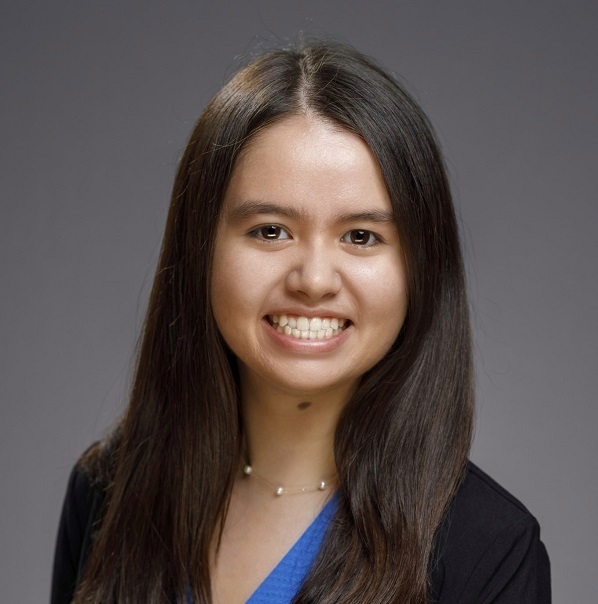

We had a conversation with economics and math major Brigid Meisenbacher—a current undergraduate intern who will graduate from Notre Dame in spring 2022—about her experience working for LEO over the past two years. Here’s what she had to say:
How has LEO changed the way you see poverty and the need for evidence?
With any discipline at the college level, you learn a lot theoretically in the classroom. Working in research study design with LEO and meeting with service providers every week, you realize there’s so much that economics can contribute to ending poverty. But, you also realize there’s a lot to be said for the people who are already actually working with people in poverty. Service providers and academia exist separate from each other most of the time, but there is such an obvious space for them to interact together. LEO is right at the cross section of that. Two years in, I keep realizing how much space there is for them to build each other up as opposed to existing in their own separate vacuums.
Everyone has an understanding of poverty, but in my everyday work, I’ve had to dig into why these problems come up and how they are intertwined. Doing LEO research regularly has given me a wider understanding of what poverty looks like. For instance, I was researching a program that has to do with asset poverty and looking into different studies about financial literacy and how asset poverty intergenerationally affects people. I think everyone has an understanding of why assets are important to build advantages across generations, but it’s important to get an actual understanding of asset poverty rather than a vague intuition.
Every intern position at LEO is a little different. What’s the best part about your job in Project Design?
It’s such a variety of topics. Every intern job varies a little, but I’m super happy with project design because it lets me get a little bit of everything. You get involved enough with every project, but at the same time, it’s not like you’re just touching the surface and passing it on to someone else. I get to do a lot of research and develop a good grasp of what each project is addressing. Then, in combination with all the other projects, you get such a better sense of the many different faces of poverty rather than just one stereotypical view.
How has your work experience shaped the way you see your future?
Two years on, I would say it’s been integral to the opportunities I’ve pursued. My first summer in the LEO environment I realized working with others, and working on issues that were topical, and working on things that I cared about was really important to me. After having that summer, I’ve definitely narrowed my vision of opportunities I was interested in just because I knew LEO’s environment was unique and I would find fulfillment in LEO’s work and the type of work they were doing.
Has LEO impacted the way you look at things in the classroom?
It definitely influenced which classes I wanted to take. Last fall, I knew I wanted to take a public econ class that was all about domestic economic conditions and issues just based on what I had learned at LEO. Then I took Jim Sullivan's labor economics class in the spring. Seeing the work Jim did, especially mid-COVID, I knew that the view of the worker was really important because it felt more personal to me. Classwork-wise, once you become aware of these issues and how dynamic these issues are, it’s natural that you would want to learn more about them.
A second area it impacted was my other research. Because of LEO, I knew I wanted to help do research in areas that contributed more to addressing social issues and enabling the development of certain economic features. During the year I was a research assistant for a professor in a completely different context: women’s work in Africa. Getting involved with any research early on (that being LEO for me) was important in making me realize that pursuing these types of opportunities would not only enhance my knowledge base but help me better see what I really do care about.
No interview would be complete without asking: Why LEO?
It’s a good question! I was asked this question last summer too, and my answer hasn’t changed but it has developed. I chose LEO, and I continue to work for LEO, because I think they approach poverty in a way that is both humble and very eager to make a difference.
The humble part comes from the fact that they acknowledge that they need the providers to do this. They can’t just go around the country and study up and then produce this work on their own. They recognize that the providers have their own perspective on this that is both important to the actual process of addressing poverty issues and also to the process of improving responses to poverty.
Additionally, I think everyone at LEO is so genuinely eager to do this work. It’s so palpable at LEO, in whatever stage of the work you’re in, that they are dedicated to producing these answers for themselves, for academia, for the providers, for a bigger good. I recognized that deep down when I first started working at LEO, but going along the process I realized it was in fact something I could be personally involved with. That’s my continued why—my second year around why. My intentions didn’t change but they definitely morphed into something a little more.
Originally published by at leo.nd.edu on February 15, 2022.